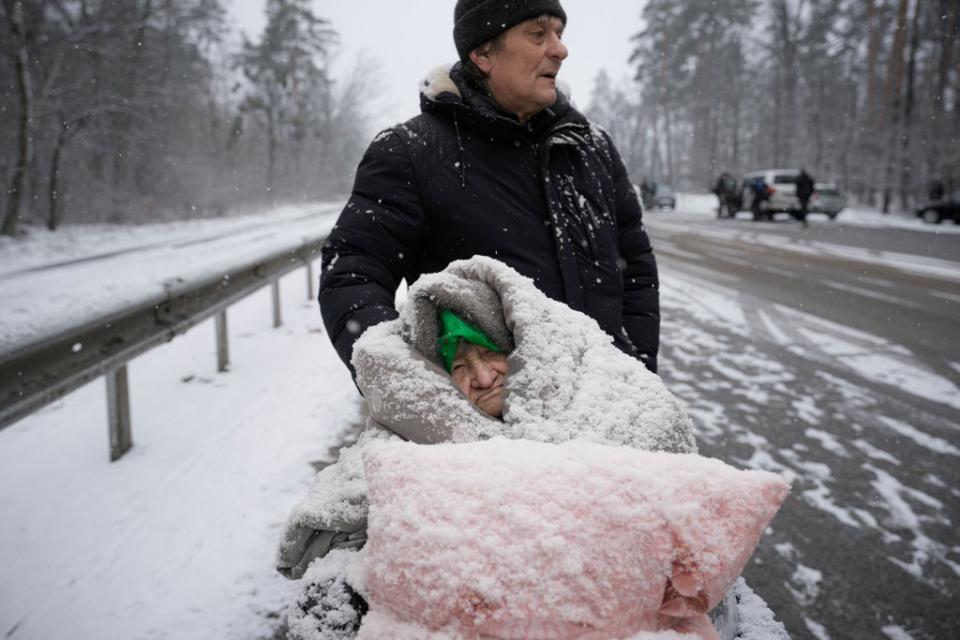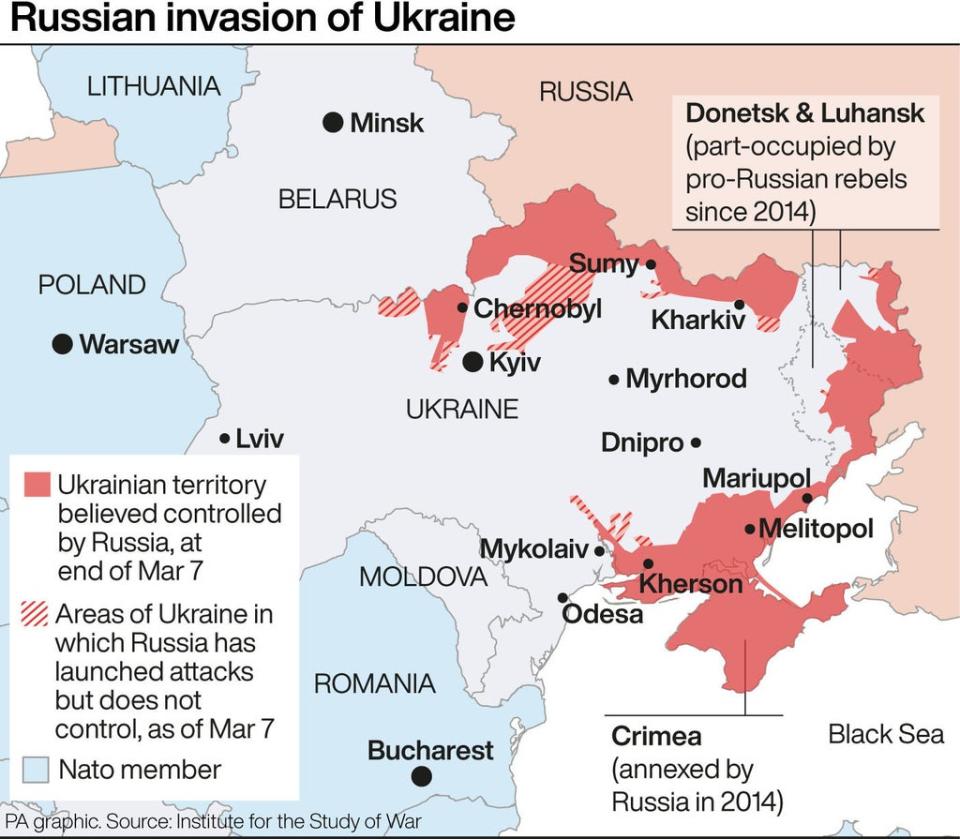Russian troops stranded in 40-mile convoy could freeze to death in ‘metal tank refrigerators’
Russian soldiers who have been stranded in a 40-mile-long armoured military column of tanks and heavy weaponry near the Ukrainian capital Kyiv for days, could soon face freezing conditions.
Already facing sub-zero temperatures during the night, Ukraine is expected to witness a cold snap over the next few days with temperatures dropping to -10C with snowfall.
Temperatures could dip further to -20C on Wednesday because of easterly wind combining with arctic air.
Such icy weather situations are expected to make living conditions worse for the Russian army, whose troops remain stuck in the huge convoy of iron tanks that have barely moved and have been bogged down around 19 miles away from the centre of the city.
The tanks would act as huge refrigerators for the Russian army if they are not running the engine and would force them to flee, Glen Grant, a senior defence expert at the Baltic Security Foundation, told Newsweek.
“A metal tank is just a fridge at night if you are not running the engine,” said Mr Grant, who advised Ukraine on its military reform.
He said “the boys [Russian troops] won’t wait, they will get out, start walking to the forest, and give themselves up” to avoid freezing to death.
“You just can’t sit around and wait because if you are in the vehicle you are waiting to be killed. They are not stupid.”

The UK’s defence ministry and US defence officials have said the convoy hasn’t moved in the last few days.
“There does not appear to be any significant movement along the Russian axes,” a senior US defence official had told reporters on Sunday.
The reasons for no significant movement could be due to mechanical problems, fuel supply issues and mounting Ukrainian resistance.
“The main body of the large Russian column advancing on Kyiv remains over 30km from the centre of the city having been delayed by staunch Ukrainian resistance, mechanical breakdown and congestion,” the MoD said in an intelligence update.
Former British Army major Kevin Price told the Daily Mail that the iron tanks will become nothing more than “40-ton freezers” as temperature would plunge and it would demotivate Russian troops not prepared for Arctic-style warfare.
Russia has been making inroads into Ukraine amid the invasion that was declared by Russian president Vladimir Putin on 24 February. Russia has so far captured Kherson in the south and has encircled the strategic port city of Mariupol.

Ukraine, which has managed to slow down the Russian troops’ offensive, has claimed to have retaken the city of Chuhuiv.
Meanwhile, Russian government officials are “privately denouncing” Mr Putin’s war as “a clusterf***”, according to a report that came amid news of many senior Russian army generals having been killed while fighting in Ukraine.
Russian journalist Farida Rustamova wrote on Substack, citing a high-level source in the Russian government, that Kremlin insiders believe the war to be a complete disaster.
“They’re carefully enunciating the word clusterf**k,’’ wrote Ms Rustamova, a journalist who has worked for the BBC and TV Rain, which recently suspended operations following Russian government pressure.
She said another source told her: “No one is rejoicing. Many understand that this is a mistake, but in the course of doing their duty, they come up with explanations in order to somehow come to terms with it.”

The Independent has a proud history of campaigning for the rights of the most vulnerable, and we first ran our Refugees Welcome campaign during the war in Syria in 2015. Now, as we renew our campaign and launch this petition in the wake of the unfolding Ukrainian crisis, we are calling on the government to go further and faster to ensure help is delivered.
To find out more about our Refugees Welcome campaign, click here. To sign the petition click here. If you would like to donate then please click here for our GoFundMe page.


